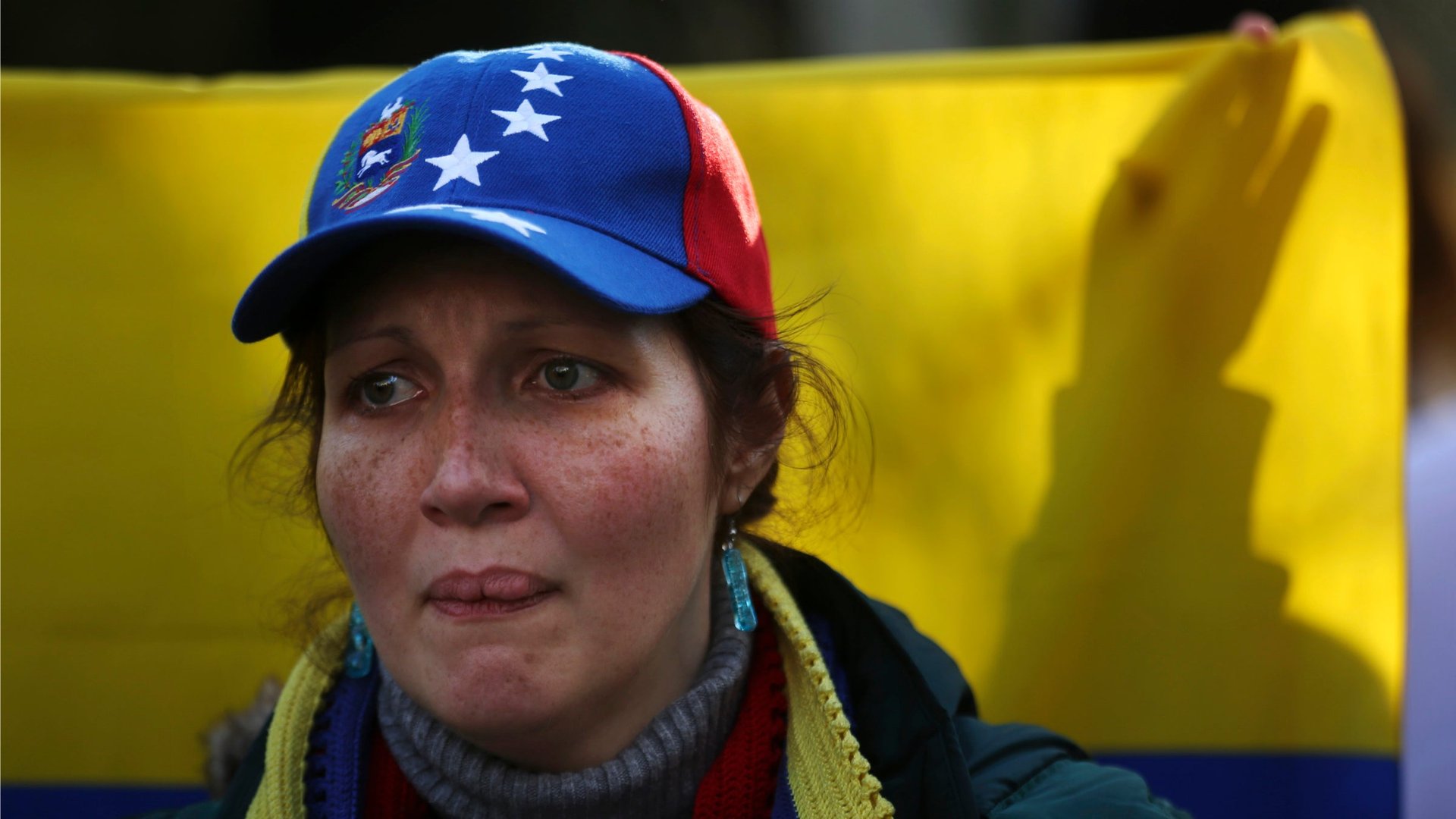Venezuela’s real inflation may be six times the official rate
Among the complaints of the Venezuelans that have taken to the street by the tens of thousands over the past couple weeks is the government’s inability to stem high inflation. It’s easy to see why people are angry; official figures put the country’s annualized inflation rate at 56%, which is among the highest in the world. And there’s reason to believe even that high number is a drastic underestimate of Venezuela’s actual inflation rate.


Among the complaints of the Venezuelans that have taken to the street by the tens of thousands over the past couple weeks is the government’s inability to stem high inflation. It’s easy to see why people are angry; official figures put the country’s annualized inflation rate at 56%, which is among the highest in the world. And there’s reason to believe even that high number is a drastic underestimate of Venezuela’s actual inflation rate.
The problem with Venezuela’s official rate is that it doesn’t account for the country’s highly active black market, according to Johns Hopkins economics professor Steve Hanke. Venezuela’s shortage index, which tracks the percentage of basic goods in short supply, is approaching 30%—meaning that well over a quarter of the things Venezuelans want to buy, they can’t easily find. The current list includes flour, corn, butter, eggs, and even toilet paper. Government controls have been put in effect to artificially keep prices low, but they have had the opposite effect of discouraging production and exacerbating the shortages.
It also doesn’t help that Venezuela’s currency, the Bolivar, has plunged since president Nicolas Maduro took office, which is making Venezuelans reluctant to hold onto the local currency, instead stashing away foreign currencies such as US dollars.
The result is that almost anything one can buy on the open market can be turned around at a higher price, often in US dollars, on the black market. “The prices in the economy are much, much higher than the controlled prices being used by the government,” Hanke said. “The inflation rate is much higher than anyone is projecting. It’s in the triple digits.” According to the Cato Institute’s troubled currencies project, which estimates the inflation implied by a country’s black market prices, Venezuela’s rate was 330% as of last week, or nearly six times the official figure.
Whether protests, which have used roadblocks as a means of disruption, will worsen Venezuela’s economic woes remains to be seen. But there’s at least the potential for such tactics to exacerbate the country’s shortages. “The protests will probably worsen them marginally,” Hanke said. “But the economy is so messed up that it may not even be that noticeable.”